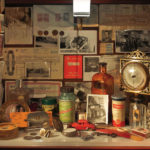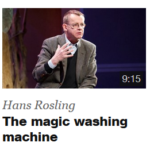Global poverty industry: development or thuggery?
The film was punchy on charities, churches and corruption in local governments. However, it was slightly softer regarding NGOs, World Banks, and neo-colonialism. Besides, it was highly ignorant to question who profited from the cultural and commercial capitals and made peace with their own needs of being kind and moral. Local ‘democratic’ governments may be the stakeholders compared to the majority. However, all are submissive with their authority to foreign capitals and political controls, which is the true intention of the poverty industry. The structural violence is not only making money and a ‘good reputation’ but also structurally choking the independency of global South political entities. That is true neo-colonialism.
‘People are poor because they lack the institutions of justice that enable them to create prosperity for their own families and communities. ‘ But aren’t they democratic institutions? Defining whether local governments are ‘good’ only according to whether they are ‘democratic’ is proved wrong, but remains the mainstream as post cold war (even neo-cold war) ideology. A Q&A with the filmmaker deliver their non-reflexive ideological viewpoint more clearly: https://www.povertyinc.org/filmmaker-qa/
Neo-colonialism is never only commercial, although that is its new ‘civilized’ appearance. The development industry may not be different from missionaries and colonizing governments, and the question is, where is the way out? A change of global geopolitical structure? There is still a long way to go between Global North and Global South. The film dared not to admit that Global South was stereotyped as poor first in politics; the economy is its outcome.
Rice was the first object attracts my attention in the film. The interviewee described the transformed rice eating habit from three times a week to nowadays three times a day, only because long lasting free rice supplies from outside. The same phenomenon happened simultaneously in the rest of the world, but mostly being critisized for the nutritional value an weekened body due to it, relating to the high-speed developing economy, not for free. Still, a global increasing excess of value mirrors first by food reminds us of the Great Depression. A used to be luxious grain starts to be globally oversupplied does not indicate a bright near future for economy.
Shoes were another symbolic object in the movie. Having shoes or not culturally relates to the financial status of an individual, and both the second-handed shoes and Tom shoes indicate a micro aggression on those who were offered free shoes. ‘No one wants to be a burgger for their entire life.’ But someone does need burggers around them for their excess of value, religious needs for salvation and political needs for being global superior in the hierarchy.
Interviewee’s appearances seem to be another radical sensitivity in the film. Vested profits from rotten development industry helped an interviewee to buy his first house, and he says ‘I’m not the only one knows that development industry collapse.His humour and relax attitude comparing to the worried couples talking about poverty orphans, and angry old local interviewees… I dare not to talk more about their faces myself.
Contributed by ConnieWang on 23/01/2023





